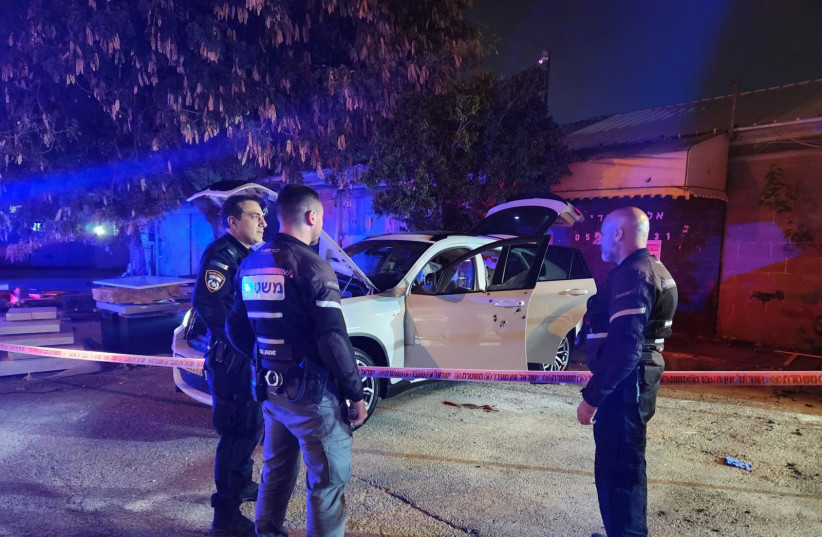Members of Israel’s Arab Higher Monitoring Committee, mayors of Arab municipalities and Arab MKs joined together in a protest in Jerusalem on Sunday, calling on the government to take action against the rising crime rate in the Arab sector.
The numbers are alarming: Since the start of the year, 78 Arab-Israelis have been killed within the community, including several women and children. The stories are heartbreaking. Families have been torn apart; children are scared to go outdoors; and as one bereaved father put it in an interview on the Reshet Bet radio station: “Everyone wonders who’s next.”
The appalling statistics mark a large jump from last year when they were bad enough: 109 people were killed in the Arab community in 2022.
The background to the spate of murders is varied: In some cases it stems from organized crime; in others, it is the result of clan warfare and revenge attacks; and in others, it is the tragic result of femicide, with family honor often being cited as the motivation.
There can be no excuse for murder. And there can be no excuse for failing to deal with it effectively.

Many of the Arab leaders talking about the crime wave have noted that – unlike in the Jewish majority – the vast number of murders within the Arab sector remain unsolved. They cite a lack of police motivation to take action.
There is another problem, however: People are too scared to cooperate with the police, in case it makes them the next target and victim.
Cooperation go hand-in-hand with education
Authorities have to act and to act now. But the government’s actions have to be backed by cooperation from within the Arab community itself. At the most basic level, these citizens should let it be known, for example, that they won’t attend weddings where there is celebratory shooting in the air.
Similarly, schools need to educate children, rather than shying away from talking about the murders. There should be a program drawn up with sensitivity, by educators and psychologists from within the Arab community, educating against the cycle of revenge killings prevalent in violence between different clans and families and against so-called honor killings.
The crackdown on criminal gangs and protection rackets must come from within the community and not only from greater police presence and actions.
Under the Safe Route program initiated by the previous government last year, there was a relatively successful effort to gather the illegal weapons which flood the Arab sector. It has been suggested that the Shin Bet (Israel Security Agency), which has different means than do the police, be involved in tackling the rising Arab crime rate. Naturally, this has met some resistance within the community as it appears to be turning it into an anti-terrorism issue, rather than a problem with criminal and domestic violence.
National Security Minister Itamar Ben-Gvir’s election campaign focused on returning “governance,” particularly in the Negev and Galilee. His demand to set up – and control – a National Guard reflects this, but so far crime has only increased since this government came to power and many of the Arab leaders refuse to hold meetings with Ben-Gvir due to his far-right political positions.
There needs to be more deterrence. Scenes of Bedouin youth in the Negev driving wildly while shooting in the air should not be taking place. This requires a greater police presence. But unless there is respect for the police it will be worthless. Although police stations have been established in more Arab towns, these too have come under attack. The recruitment drive for police from within the Arab communities also needs to overcome these hurdles.
There is a clear link between the accessibility of arms, crime and terror. But a campaign to halt the rising homicide rate within the Arab sector should not be motivated by fear of terrorism.
The vast majority of Arab Israelis are law-abiding citizens. Their security should be a basic right, as it is for all other citizens. The leaders of the Arab community who rallied outside the Knesset yesterday voiced the message that enough is enough. Now they need to work with the government to stem the tide of violence.
